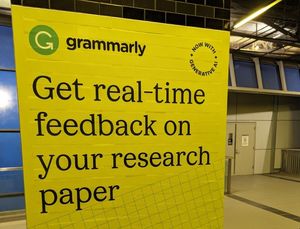A couple of things I read recently about metadata and its creators. One of the people I interviewed for the scan described OCLC as a “social organization for ensuring consistency of cataloging”. I am reminded of this when I come across discussion of emerging metadata creation models, in particular where there is complaint about the quality of metadata harvested from various repositories under OAI. Clearly, if metadata is created within different regimes without common guidelines and practices there is going to be inconsistency, and it is surprising to me that people are surprised by this.
Writing about improving the quality of metadata in e-print archives the authors of a recent article note:
Metadata quality is a particular problem for the eprints community for two reasons. Firstly, within eprint archives, metadata creation is often carried out by document authors as part of the deposit process; yet there remains a lack of good (and configurable) metadata creation tools that support the untrained end-user in this task. Secondly, in order for end-users to benefit fully from the development of eprint archives, service providers need to maintain a high level of consistency across multiple data providers. In other service areas, where this high level of interoperability is not as important, lower metadata quality may be more easily tolerated. In eprint archives, metadata quality influences not only the service offered through the archive’s native Web interface, but also what options can be offered by OAI service providers like ePrints UK. Some of the quality assurance points noted below, such as defining functional requirements, may need to be articulated at both levels. Groups of data providers, e.g. those within a particular project or initiative, may want to define requirements cooperatively with appropriate service providers, and from those outline the minimum ‘quality’ requirements for participating data providers. [Main Articles: ‘Improving the Quality of Metadata in Eprint Archives’, Ariadne Issue 38]
Mark Butler, one of the HP researchers on the Simile project, has an interesting article on barriers to implementation of the semantic web. He identifies three roles in relation to metadata: producers, consumers, and beneficiaries. He suggests that within the library community, producers and consumers have historically been the same (the library), whereas in the distributed web world this is not necessarily so. The three roles he identifies may be held by different parties.
The problem here is each group does not necessarily understand the needs of the other so the metadata may not be capable of supporting the use cases of the other party [Barriers to real world adoption of semantic web technologies]
I think one could interestingly develop a discussion around these roles in the context of emerging practice in the learning technology and cultural heritage communities.



